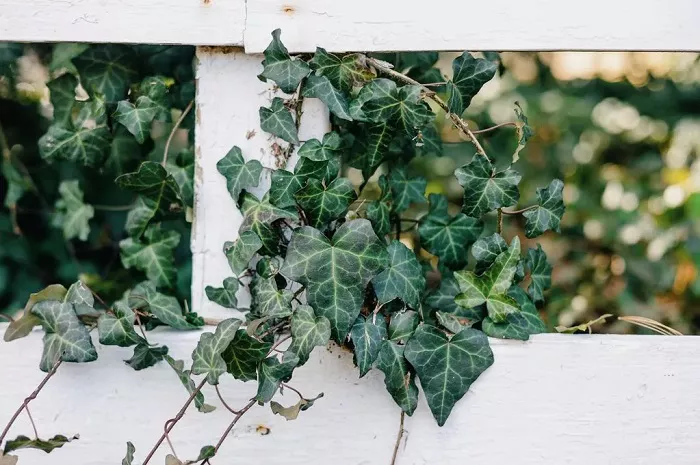Home gardeners in the UK are well aware of the tenacity of English ivy, an evergreen climber that thrives throughout the country. Often found clinging to walls, fences, and trees, it forms dense leaf coverings. While it provides ecological benefits such as shelter for birds and aiding pollination, its tendency to overtake other plants, damage old walls, and block sunlight can be a nuisance for gardening enthusiasts.
When dealing with fast-growing weeds like ivy, many might think strong chemicals are the only solution. However, specialists at Drip Works have proposed a homemade remedy using three common kitchen items to permanently eliminate this “serious and invasive” ivy.
The approach to managing unwanted ivy varies depending on its location within the garden. For ivy-covered walls, Drip Works experts suggest a vinegar-based spray, as reported by the Express. “If you want an ivy-free garden wall, this is an effective and natural way to achieve it,” the experts at Drip Works recommend, according to Nottinghamshire Live. They advocate a mixture of apple cider vinegar, salt, and washing-up liquid, which they claim is “proven to be the best solution to kill ivy.”
Preparing this ivy-killing spray is simple. Mix one gallon of apple cider vinegar, one tablespoon of salt, and about two tablespoons (or one ounce) of washing-up liquid in a spray bottle. You can use either apple cider vinegar or white vinegar, with apple cider vinegar possibly being more effective due to its additional compounds beyond acetic acid. The effectiveness of either vinegar in killing ivy depends on the acetic acid concentration, which varies between different types of vinegar.
If you don’t have apple cider vinegar at home, you can easily purchase a bottle from your local supermarket. Sainsbury’s sells 500 ml of Apple Cider Vinegar for just £2.10. Before applying the mixture, secure the lid and shake it well. It’s also crucial to wear gardening gloves, long sleeves, and boots to protect yourself during the process.
Irrigation experts recommend letting the vinegar solution coat the ivy plants for at least five days before assessing its impact. This liquid mixture acts as a natural herbicide, dehydrating ivy leaves and breaking down their protective waxy layer. After five to six days, use garden shears and a pruning saw to remove dead ivy clinging to the building. If any leaves resist the herbicide, you may need to repeat the process until the English ivy is completely eliminated. After the leaves have died off, it’s vital to physically remove the roots, as ivy is tenacious and will regrow from even a tiny root fragment.
While ivy can offer nesting spaces for wildlife within its thick growth, unchecked spread can threaten trees by adding weight and competing for light and moisture.


